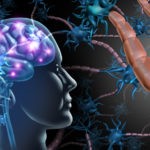An Often Misdiagnosed Dementia

Many people had never heard of Lewy body dementia until it was reported in 2014 that this was the disease that afflicted Robin Williams. While Lewy body dementia and Alzheimer’s disease are the two most common types of dementia, those who have Lewy body dementia are often misdiagnosed as having Alzheimer’s disease or depression. As a result, they do not get the treatment and support they need.
Considerable’s recent article entitled “The second most common type of dementia often goes unrecognized” reports that in one study, nearly 70% of people diagnosed with Lewy body dementia visited three consultants before receiving the diagnosis. For 33% of people with the disease, the dementia was misdiagnosed and getting the correct diagnosis took over two years.
There are two different conditions associated with Lewy body dementia: dementia with Lewy bodies and Parkinson’s disease dementia. In dementia with Lewy bodies, problems with memory and thinking occur simultaneously with problems involving movement, like those associated with Parkinson’s disease. In Parkinson’s disease dementia, a person who has had movement problems resembling Parkinson’s disease for several years, then develops difficulties with memory and thinking.
In addition to memory, thinking, and movement problems, symptoms of Lewy body dementia include issues with alertness and concentration, hallucinations and paranoia, acting out dreams during sleep, low blood pressure when standing, daytime sleepiness and depression.
Because the symptoms of Lewy body dementia often resemble other conditions, research reveals that the first diagnosis is commonly incorrect. For example, in one study 26% of people who had Lewy body dementia were misdiagnosed as having Alzheimer’s disease, and 24% were determined to have a psychiatric diagnosis like depression.
We saw this first hand at our firm when a family member was suffering with this kind of dementia. It went undiagnosed until it was too late to treat it properly. We feel it’s important to get the word out to family members who might think their loved one is suffering from depression, Parkinson’s disease, or another kind of dementia.
Failure to properly diagnose a person with Lewy body dementia can result in delay in treatment specifically targeted for that condition. Also, with the correct diagnosis, patients and families can seek out resources, such as the Lewy Body Dementia Association, an organization dedicated to helping people living with this disease. This group provides education on Lewy body dementia, helps patients and families know what to expect, connects patients and families to support and resources and helps them find research opportunities.
For more information on dementia issues see https://galligan-law.com/some-common-drugs-may-increase-risk-of-dementia/
Reference: Considerable (Aug. 14, 2020) “The second most common type of dementia often goes unrecognized”

